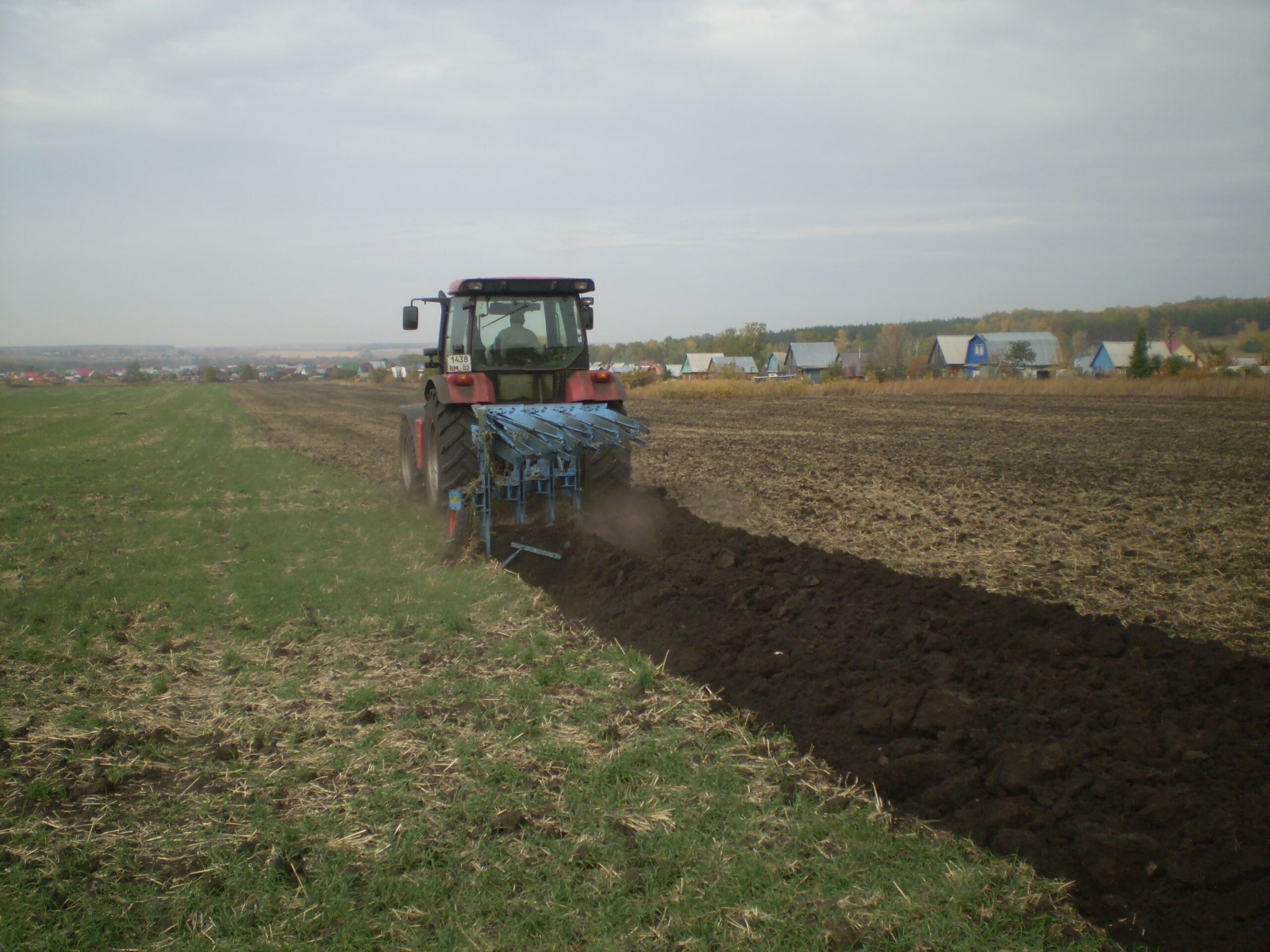The project examined post-Soviet land use change using the example of the Russian republic of Bashkortostan. In addition to the control variables of land use, the effects of land use change in intensity and dynamics on soil degradation and the soil water balance were analysed.
Sub-project leader:
- Manfred Frühauf
Team:
Project partners:
- Bashkir State University Ufa (BSU)
- Bashkir State Agricultural University Ufa (BSAU)
- Ufa Aerospace University (now part of BSU)
- Russian Academy of Sciences, Institute of Biology, Soil Science Laboratory (RAS)
Background and objectives:
- Changes in the socio-economic framework after the collapse of the Soviet Union lead to a change in the type and intensity of agricultural land use in the agriculturally and ecologically important Russian black earth regions.
- There is still a lack of knowledge in the international scientific community about the manifestations of land use change in many regions of Russia, its control variables and the geo-ecological consequences.
- The aim of the project is a better understanding of the cause-effect structure: agricultural land use change – soil development and degradation – yield potential for the development of ecologically and agro-economically sustainable use conceptsagrarischer Landnutzungswandel – Bodenentwicklung und Degradation – Ertragspotential zur Entwicklung ökologisch und agrarökonomisch nachhaltiger Nutzungskonzepte
Methodical approach:
- Investigation of the soil water regime (surface runoff and infiltration) during snowmelt on differently managed runoff plots using field measurement techniques.
- Soil moisture measurements by means of stationary and mobile FDR probes on differently intensively managed experimental plots
- Laboratory investigations of physical and chemical soil parameters
- interview campaigns with farmers in the region on farming practices and motives
- Geostatistical analysis of control variables of regional land use decisions
Results:
- Detailed analysis of post-Soviet land use change and its control variables in the Bashkir steppe and forest steppe.
- Effects of different tillage concepts on physical and chemical soil parameters as well as soil water balance
- Evaluation of different soil management forms under consideration of climate change from an ecological and agro-economic perspective
Publications:
2355391
MDLREVTX
VWBASCHKORTOSTAN
1
american-journal-of-plant-sciences
50
date
desc
1
5652
https://geooeko.geo.uni-halle.de/wp-content/plugins/zotpress/
%7B%22status%22%3A%22success%22%2C%22updateneeded%22%3Afalse%2C%22instance%22%3Afalse%2C%22meta%22%3A%7B%22request_last%22%3A0%2C%22request_next%22%3A0%2C%22used_cache%22%3Atrue%7D%2C%22data%22%3A%5B%7B%22key%22%3A%22NBU66AUZ%22%2C%22library%22%3A%7B%22id%22%3A2355391%7D%2C%22meta%22%3A%7B%22creatorSummary%22%3A%22Liebelt%20et%20al.%22%2C%22parsedDate%22%3A%222016%22%2C%22numChildren%22%3A0%7D%2C%22bib%22%3A%22%26lt%3Bdiv%20class%3D%26quot%3Bcsl-bib-body%26quot%3B%20style%3D%26quot%3Bline-height%3A%201.35%3B%20%26quot%3B%26gt%3B%5Cn%20%20%26lt%3Bdiv%20class%3D%26quot%3Bcsl-entry%26quot%3B%20style%3D%26quot%3Bclear%3A%20left%3B%20%26quot%3B%26gt%3B%5Cn%20%20%20%20%26lt%3Bdiv%20class%3D%26quot%3Bcsl-left-margin%26quot%3B%20style%3D%26quot%3Bfloat%3A%20left%3B%20padding-right%3A%200.5em%3B%20text-align%3A%20right%3B%20width%3A%201em%3B%26quot%3B%26gt%3B1%20%26lt%3B%5C%2Fdiv%26gt%3B%26lt%3Bdiv%20class%3D%26quot%3Bcsl-right-inline%26quot%3B%20style%3D%26quot%3Bmargin%3A%200%20.4em%200%201.5em%3B%26quot%3B%26gt%3BLiebelt%2C%20P.%2C%20Fr%26%23xFC%3Bhauf%2C%20M.%2C%20Suleymanov%2C%20R.%2C%20Komissarov%2C%20M.%2C%20Yumaguzhina%2C%20D.%20and%20Galimova%2C%20R.%20%282016%29%20Ursachen%2C%20Folgen%20Und%20Chancen%20Des%20Postsowjetischen%20Landnutzungswandels%20inderWaldsteppenzone%20Baschkortostans.%20GEO-%26%23xD6%3BKO%2C%20G%26%23xF6%3Bttingen.%26lt%3B%5C%2Fdiv%26gt%3B%5Cn%20%20%26lt%3B%5C%2Fdiv%26gt%3B%5Cn%26lt%3B%5C%2Fdiv%26gt%3B%22%2C%22data%22%3A%7B%22itemType%22%3A%22bookSection%22%2C%22title%22%3A%22Ursachen%2C%20Folgen%20und%20Chancen%20des%20postsowjetischen%20Landnutzungswandels%20inderWaldsteppenzone%20Baschkortostans%22%2C%22creators%22%3A%5B%7B%22creatorType%22%3A%22author%22%2C%22firstName%22%3A%22Peter%22%2C%22lastName%22%3A%22Liebelt%22%7D%2C%7B%22creatorType%22%3A%22author%22%2C%22firstName%22%3A%22M.%22%2C%22lastName%22%3A%22Fr%5Cu00fchauf%22%7D%2C%7B%22creatorType%22%3A%22author%22%2C%22firstName%22%3A%22R.%22%2C%22lastName%22%3A%22Suleymanov%22%7D%2C%7B%22creatorType%22%3A%22author%22%2C%22firstName%22%3A%22M.%22%2C%22lastName%22%3A%22Komissarov%22%7D%2C%7B%22creatorType%22%3A%22author%22%2C%22firstName%22%3A%22D.%22%2C%22lastName%22%3A%22Yumaguzhina%22%7D%2C%7B%22creatorType%22%3A%22author%22%2C%22firstName%22%3A%22R.%22%2C%22lastName%22%3A%22Galimova%22%7D%5D%2C%22abstractNote%22%3A%22%22%2C%22bookTitle%22%3A%22GEO-%5Cu00d6KO%22%2C%22date%22%3A%222016%22%2C%22language%22%3A%22%22%2C%22ISBN%22%3A%22%22%2C%22url%22%3A%22%22%2C%22collections%22%3A%5B%22MDLREVTX%22%5D%2C%22dateModified%22%3A%222022-02-21T09%3A34%3A33Z%22%7D%7D%2C%7B%22key%22%3A%22PJ7PJJ58%22%2C%22library%22%3A%7B%22id%22%3A2355391%7D%2C%22meta%22%3A%7B%22creatorSummary%22%3A%22Gabbasova%20et%20al.%22%2C%22parsedDate%22%3A%222014%22%2C%22numChildren%22%3A0%7D%2C%22bib%22%3A%22%26lt%3Bdiv%20class%3D%26quot%3Bcsl-bib-body%26quot%3B%20style%3D%26quot%3Bline-height%3A%201.35%3B%20%26quot%3B%26gt%3B%5Cn%20%20%26lt%3Bdiv%20class%3D%26quot%3Bcsl-entry%26quot%3B%20style%3D%26quot%3Bclear%3A%20left%3B%20%26quot%3B%26gt%3B%5Cn%20%20%20%20%26lt%3Bdiv%20class%3D%26quot%3Bcsl-left-margin%26quot%3B%20style%3D%26quot%3Bfloat%3A%20left%3B%20padding-right%3A%200.5em%3B%20text-align%3A%20right%3B%20width%3A%201em%3B%26quot%3B%26gt%3B1%20%26lt%3B%5C%2Fdiv%26gt%3B%26lt%3Bdiv%20class%3D%26quot%3Bcsl-right-inline%26quot%3B%20style%3D%26quot%3Bmargin%3A%200%20.4em%200%201.5em%3B%26quot%3B%26gt%3BGabbasova%2C%20I.%2C%20Fr%26%23xFC%3Bhauf%2C%20M.%2C%20Khabirov%2C%20I.%2C%20Suleymanov%2C%20R.%20and%20Liebelt%2C%20P.%20%282014%29%20Changes%20in%20the%20Properties%20of%20Eroded%20Soils%20in%20a%20Long%20Time%20Period.%20In%3A%20Zlatic%2C%20M.%20and%20Kostadinov%2C%20S.%2C%20Eds.%2C%20Challenges%3A%20Sustainable%20Land%20Management%20-%20Climate%20Change%2C%20359.%20%26lt%3Ba%20class%3D%26%23039%3Bzp-ItemURL%26%23039%3B%20target%3D%26%23039%3B_blank%26%23039%3B%20href%3D%26%23039%3Bhttps%3A%5C%2F%5C%2Fwww.schweizerbart.de%5C%2Fpublications%5C%2Fdetail%5C%2Fisbn%5C%2F9783510653812%26%23039%3B%26gt%3Bhttps%3A%5C%2F%5C%2Fwww.schweizerbart.de%5C%2Fpublications%5C%2Fdetail%5C%2Fisbn%5C%2F9783510653812%26lt%3B%5C%2Fa%26gt%3B.%26lt%3B%5C%2Fdiv%26gt%3B%5Cn%20%20%26lt%3B%5C%2Fdiv%26gt%3B%5Cn%26lt%3B%5C%2Fdiv%26gt%3B%22%2C%22data%22%3A%7B%22itemType%22%3A%22bookSection%22%2C%22title%22%3A%22Changes%20in%20the%20Properties%20of%20Eroded%20Soils%20in%20a%20Long%20Time%20Period%22%2C%22creators%22%3A%5B%7B%22creatorType%22%3A%22author%22%2C%22firstName%22%3A%22I.%22%2C%22lastName%22%3A%22Gabbasova%22%7D%2C%7B%22creatorType%22%3A%22author%22%2C%22firstName%22%3A%22M.%22%2C%22lastName%22%3A%22Fr%5Cu00fchauf%22%7D%2C%7B%22creatorType%22%3A%22author%22%2C%22firstName%22%3A%22I.%22%2C%22lastName%22%3A%22Khabirov%22%7D%2C%7B%22creatorType%22%3A%22author%22%2C%22firstName%22%3A%22R.%22%2C%22lastName%22%3A%22Suleymanov%22%7D%2C%7B%22creatorType%22%3A%22author%22%2C%22firstName%22%3A%22Peter%22%2C%22lastName%22%3A%22Liebelt%22%7D%2C%7B%22creatorType%22%3A%22editor%22%2C%22firstName%22%3A%22M.%22%2C%22lastName%22%3A%22Zlatic%22%7D%2C%7B%22creatorType%22%3A%22editor%22%2C%22firstName%22%3A%22S.%22%2C%22lastName%22%3A%22Kostadinov%22%7D%5D%2C%22abstractNote%22%3A%22%22%2C%22bookTitle%22%3A%22Challenges%3A%20Sustainable%20Land%20Management%20-%20Climate%20Change%22%2C%22date%22%3A%222014%22%2C%22language%22%3A%22%22%2C%22ISBN%22%3A%22978-3-510-65381-2%22%2C%22url%22%3A%22https%3A%5C%2F%5C%2Fwww.schweizerbart.de%5C%2Fpublications%5C%2Fdetail%5C%2Fisbn%5C%2F9783510653812%22%2C%22collections%22%3A%5B%22MDLREVTX%22%5D%2C%22dateModified%22%3A%222022-02-16T15%3A25%3A47Z%22%7D%7D%2C%7B%22key%22%3A%225HNFEEPF%22%2C%22library%22%3A%7B%22id%22%3A2355391%7D%2C%22meta%22%3A%7B%22creatorSummary%22%3A%22Gabbasova%20et%20al.%22%2C%22parsedDate%22%3A%222013%22%2C%22numChildren%22%3A0%7D%2C%22bib%22%3A%22%26lt%3Bdiv%20class%3D%26quot%3Bcsl-bib-body%26quot%3B%20style%3D%26quot%3Bline-height%3A%201.35%3B%20%26quot%3B%26gt%3B%5Cn%20%20%26lt%3Bdiv%20class%3D%26quot%3Bcsl-entry%26quot%3B%20style%3D%26quot%3Bclear%3A%20left%3B%20%26quot%3B%26gt%3B%5Cn%20%20%20%20%26lt%3Bdiv%20class%3D%26quot%3Bcsl-left-margin%26quot%3B%20style%3D%26quot%3Bfloat%3A%20left%3B%20padding-right%3A%200.5em%3B%20text-align%3A%20right%3B%20width%3A%201em%3B%26quot%3B%26gt%3B1%20%26lt%3B%5C%2Fdiv%26gt%3B%26lt%3Bdiv%20class%3D%26quot%3Bcsl-right-inline%26quot%3B%20style%3D%26quot%3Bmargin%3A%200%20.4em%200%201.5em%3B%26quot%3B%26gt%3BGabbasova%2C%20I.%2C%20Suleymanov%2C%20R.%2C%20Khabirov%2C%20I.%2C%20Liebelt%2C%20P.%2C%20Komissarov%2C%20M.%2C%20Gimaletdinova%2C%20G.%20and%20Khamatshin%2C%20A.%20%282013%29%20Effect%20of%20Tillage%20on%20the%20Properties%20of%20Eroded%20Chernozem%20Leached.%20IzvestiyaSamarskogo%20Nauchnogo%20Centra%20Rossijskoj%20Akademii%20Nauk%2C%201241%26%23x2013%3B1245.%26lt%3B%5C%2Fdiv%26gt%3B%5Cn%20%20%26lt%3B%5C%2Fdiv%26gt%3B%5Cn%26lt%3B%5C%2Fdiv%26gt%3B%22%2C%22data%22%3A%7B%22itemType%22%3A%22bookSection%22%2C%22title%22%3A%22Effect%20of%20tillage%20on%20the%20properties%20of%20eroded%20chernozem%20leached%22%2C%22creators%22%3A%5B%7B%22creatorType%22%3A%22author%22%2C%22firstName%22%3A%22I.%22%2C%22lastName%22%3A%22Gabbasova%22%7D%2C%7B%22creatorType%22%3A%22author%22%2C%22firstName%22%3A%22R.%22%2C%22lastName%22%3A%22Suleymanov%22%7D%2C%7B%22creatorType%22%3A%22author%22%2C%22firstName%22%3A%22I.%22%2C%22lastName%22%3A%22Khabirov%22%7D%2C%7B%22creatorType%22%3A%22author%22%2C%22firstName%22%3A%22Peter%22%2C%22lastName%22%3A%22Liebelt%22%7D%2C%7B%22creatorType%22%3A%22author%22%2C%22firstName%22%3A%22M.%22%2C%22lastName%22%3A%22Komissarov%22%7D%2C%7B%22creatorType%22%3A%22author%22%2C%22firstName%22%3A%22G.%22%2C%22lastName%22%3A%22Gimaletdinova%22%7D%2C%7B%22creatorType%22%3A%22author%22%2C%22firstName%22%3A%22A.%22%2C%22lastName%22%3A%22Khamatshin%22%7D%5D%2C%22abstractNote%22%3A%22%22%2C%22bookTitle%22%3A%22IzvestiyaSamarskogo%20nauchnogo%20centra%20Rossijskoj%20akademii%20nauk%22%2C%22date%22%3A%222013%22%2C%22language%22%3A%22%22%2C%22ISBN%22%3A%22%22%2C%22url%22%3A%22%22%2C%22collections%22%3A%5B%22MDLREVTX%22%5D%2C%22dateModified%22%3A%222022-02-21T09%3A34%3A23Z%22%7D%7D%5D%7D
1
Liebelt, P., Frühauf, M., Suleymanov, R., Komissarov, M., Yumaguzhina, D. and Galimova, R. (2016) Ursachen, Folgen Und Chancen Des Postsowjetischen Landnutzungswandels inderWaldsteppenzone Baschkortostans. GEO-ÖKO, Göttingen.
1
Gabbasova, I., Frühauf, M., Khabirov, I., Suleymanov, R. and Liebelt, P. (2014) Changes in the Properties of Eroded Soils in a Long Time Period. In: Zlatic, M. and Kostadinov, S., Eds., Challenges: Sustainable Land Management - Climate Change, 359. https://www.schweizerbart.de/publications/detail/isbn/9783510653812.
1
Gabbasova, I., Suleymanov, R., Khabirov, I., Liebelt, P., Komissarov, M., Gimaletdinova, G. and Khamatshin, A. (2013) Effect of Tillage on the Properties of Eroded Chernozem Leached. IzvestiyaSamarskogo Nauchnogo Centra Rossijskoj Akademii Nauk, 1241–1245.

